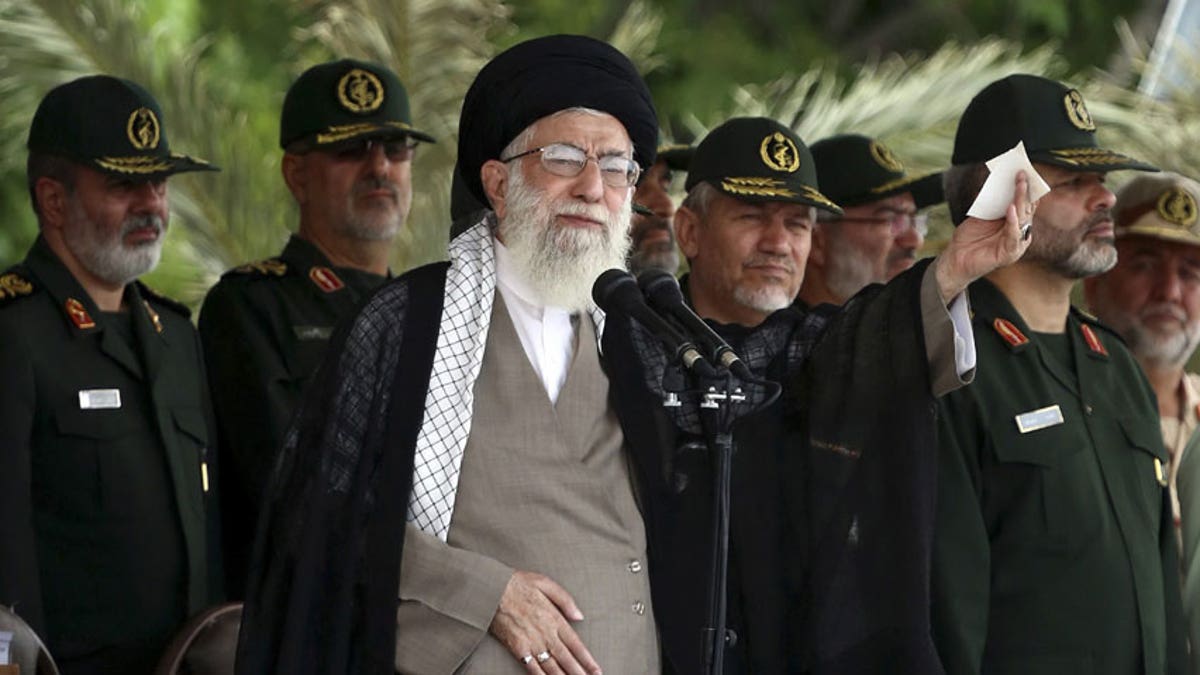
Iranians have little faith Supreme Leader Ali Khamenei will allow a fair vote in the presidential elections. (AP)
Friday’s presidential elections in Iran came amid an atmosphere of resignation, in sharp contrast to the energy and hope that characterized the 2009 vote that sparked the so-called Green Revolution.
Iranians trudged to the polls, determined to cast their votes even if they knew life inside the Islamic Republic is not likely to change much even with Mahmoud Ahmadinejad’s tenure as president coming to an end. Where social media was used four years ago to animate crowds idealistically seeking democracy, this time it carried forth messages of cynicism and powerlessness.
[pullquote]
“I exercised my right to vote,” a young woman from Iran tweeted in Persian. “I hope for better times, even if it’s in vain.”
All around the nation of nearly 80 million, Iranians appear to have accepted their fate of living under the rule of an Islamic dictatorship. Many believe the 2009 elections were rigged, and the exercise of choosing a president to serve at the whims of the religious clerics that rule Iran is illusory.
“This is not an election! It is a selection! Let’s see what Khamenei has cooked up for us this time!” another woman from Iran wrote on Facebook, referring to the Supreme Leader Ali Khamenei’s absolute power in declaring President Ahmadinejad’s victory in the last election.
Iran’s religious rulers sought to avoid a repeat of 2009, with a widespread crackdown on journalists and political activists and a deliberate effort to slow down the Internet.
For those who voted in the Islamic Republic’s 11th presidential election since the 1979 revolution, the most important issues appeared to be economic policies and developing better foreign relations.
Despite ample oil resources, the OPEC nation is experiencing historically high inflation and unemployment rates. Crippling sanctions issued by the West in an effort to curb the regime’s ongoing nuclear program have made food and other essential items extremely expensive and often scarce for many Iranian families.
For a winner to emerge in the first round of elections, he must garner a majority of votes in the eight-man field. That is seen as unlikely, and polls suggest there will be a runoff between the top candidates, Hassan Rohani, a 65-year-old cleric and former secretary of the Supreme National Security Council, and Mohammed Bagher Qalibaf, the 51-year-old conservative former military commander.
Rohani is seen as the only moderate in the field. Former presidents Mohamad Khatami and Ali Akbar Hashemi Rafsanjani, both of whom represent a large portion of Iran’s reformist constituency, publicly endorsed Rohani this week.
The two are among the six candidates left in the race vetted by the Guardian Council, which barred women from running.
Some supporters of the opposition Green Movement who had not yet decided about whether to boycott the election came out to vote for Rohani, hoping a reformist candidate would help to improve political and economic issues in Iran.
Last month, Secretary of State John Kerry criticized the repressive nature of the elections, and said he does not expect them to “change the fundamental calculus of Iran.”
Khamenei responded to those remarks today stating, “To hell with you if you do not believe in our election. If the Iranian nation had to wait for you to see what you believe in and what you do not, then the Iranian nation would have lagged behind.”
The Supreme Leader, who was among the first to cast a ballot today, has not yet openly endorsed a candidate.
